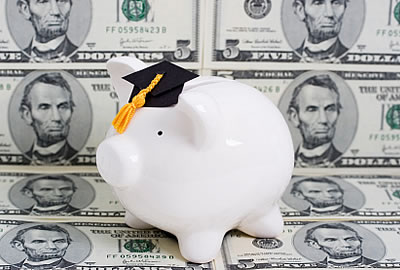Spend, If You Can
Acting as you normally would will help offset belt-tightening by those in genuine distress.

Profit and prosper with the best of Kiplinger's advice on investing, taxes, retirement, personal finance and much more. Delivered daily. Enter your email in the box and click Sign Me Up.
You are now subscribed
Your newsletter sign-up was successful
Want to add more newsletters?

Delivered daily
Kiplinger Today
Profit and prosper with the best of Kiplinger's advice on investing, taxes, retirement, personal finance and much more delivered daily. Smart money moves start here.

Sent five days a week
Kiplinger A Step Ahead
Get practical help to make better financial decisions in your everyday life, from spending to savings on top deals.

Delivered daily
Kiplinger Closing Bell
Get today's biggest financial and investing headlines delivered to your inbox every day the U.S. stock market is open.

Sent twice a week
Kiplinger Adviser Intel
Financial pros across the country share best practices and fresh tactics to preserve and grow your wealth.

Delivered weekly
Kiplinger Tax Tips
Trim your federal and state tax bills with practical tax-planning and tax-cutting strategies.

Sent twice a week
Kiplinger Retirement Tips
Your twice-a-week guide to planning and enjoying a financially secure and richly rewarding retirement

Sent bimonthly.
Kiplinger Adviser Angle
Insights for advisers, wealth managers and other financial professionals.

Sent twice a week
Kiplinger Investing Weekly
Your twice-a-week roundup of promising stocks, funds, companies and industries you should consider, ones you should avoid, and why.

Sent weekly for six weeks
Kiplinger Invest for Retirement
Your step-by-step six-part series on how to invest for retirement, from devising a successful strategy to exactly which investments to choose.
Please take the following short quiz, answering each question with a simple yes or no:Is your household income about the same as or more than it has averaged over the past few years? Is your job reasonably secure? Are your financial obligations -- mortgage payment, car payment, school tuition, other family expenses -- about what they were last year? Are you saving about 10% of your gross income for all of your future needs combined -- emergencies, retirement, the kids' college, a major purchase?
If you answered yes to those four questions, you are among the fortunate folks who are faring pretty well despite this severe economic downturn. (And kudos to you for managing your career and your finances wisely.)
Because you are both fortunate and wise, Uncle Sam wants you to play a key role in America's economic recovery. How? By maintaining your normal levels of consumer spending and charitable giving -- and, if possible, even increasing them a bit.
From just $107.88 $24.99 for Kiplinger Personal Finance
Become a smarter, better informed investor. Subscribe from just $107.88 $24.99, plus get up to 4 Special Issues

Sign up for Kiplinger’s Free Newsletters
Profit and prosper with the best of expert advice on investing, taxes, retirement, personal finance and more - straight to your e-mail.
Profit and prosper with the best of expert advice - straight to your e-mail.
Acting as you normally would will help offset belt-tightening by those in genuine distress, who have no choice but to cut back, and by those who aren't in trouble but are cutting back anyway.
Reasonable response
Why are some people slashing spending even though their income is secure? One reason is a drop in their net worth, due to eroding home prices and financial assets.
It's the reverse of the so-called wealth effect, which caused people to spend and borrow more freely in boom times, confident that their net worth would keep rising unabated. Now, with their wealth declining, people are acting more cautiously even if their income hasn't been cut. That's a reasonable response. Unfortunately, overdoing it will aggravate the economic slump.
Another psychological factor is at play here: a desire on the part of well-off Americans to show empathy for their less-fortunate brethren by spending less. It seems that voluntary frugality is now as chic as high living was during the credit bubble in the middle of this decade. Nowadays, people who are still reasonably affluent are boasting about pinching pennies, eating at home, canceling trips and hanging on to the old car.
But I have news for them: If they really want to help individuals who are less fortunate, they should be doing precisely the opposite. Boosting their spending -- and their giving -- will help businesses forestall some layoffs and eventually put people who have lost their jobs back to work.
Sensible spending
I'm not talking about conspicuous consumption, which is wasteful and unseemly in good times and downright callous when times are tough. And I'm not talking about drawing down savings. I've been beating the drum of simple living for many years, and I'm not changing my tune now.
I just mean that in these difficult times, you shouldn't be embarrassed to trade up to a larger home that your family really needs and can afford. Or to trade in your old car for a new one that's more fuel-efficient. Or better yet, to boost your donations to schools, struggling arts organizations and social-service charities that help the needy.
If you can afford it, do your fellow Americans a favor by taking a family trip to a domestic destination. And go out to dinner a little more often. Restaurateurs, like most smart business owners suffering a falloff in patrons, are responding with value pricing.
Matter of fact, the whole U.S. economy is loaded with bargains, from Wall Street to Main Street. So while you're bolstering consumer spending, keep adding to your positions in well-priced U.S. stocks, and be prepared to hold them for three to five years.
The idea is to spend sensibly, with confidence and creativity. It's the best way to get the U.S. economy back on track.
Columnist Knight Kiplinger is editor in chief of Kiplinger's Personal Finance magazine and of The Kiplinger Letter and Kiplinger.com.
Profit and prosper with the best of Kiplinger's advice on investing, taxes, retirement, personal finance and much more. Delivered daily. Enter your email in the box and click Sign Me Up.

Knight came to Kiplinger in 1983, after 13 years in daily newspaper journalism, the last six as Washington bureau chief of the Ottaway Newspapers division of Dow Jones. A frequent speaker before business audiences, he has appeared on NPR, CNN, Fox and CNBC, among other networks. Knight contributes to the weekly Kiplinger Letter.
-
 Dow Leads in Mixed Session on Amgen Earnings: Stock Market Today
Dow Leads in Mixed Session on Amgen Earnings: Stock Market TodayThe rest of Wall Street struggled as Advanced Micro Devices earnings caused a chip-stock sell-off.
-
 How to Watch the 2026 Winter Olympics Without Overpaying
How to Watch the 2026 Winter Olympics Without OverpayingHere’s how to stream the 2026 Winter Olympics live, including low-cost viewing options, Peacock access and ways to catch your favorite athletes and events from anywhere.
-
 Here’s How to Stream the Super Bowl for Less
Here’s How to Stream the Super Bowl for LessWe'll show you the least expensive ways to stream football's biggest event.
-
 21 Last-Minute Gifts for Grandparents Day 2025 to Give Right Now
21 Last-Minute Gifts for Grandparents Day 2025 to Give Right NowHoliday Tips Last-minute gifting is never easy. But here are some ideas to celebrate Grandparents Day.
-
 Texas Sales Tax-Free Weekend 2025
Texas Sales Tax-Free Weekend 2025Tax Holiday Here's what you needed to know about the Texas sales tax holiday.
-
 Alabama Tax-Free Weekend 2025
Alabama Tax-Free Weekend 2025Tax Holiday Here’s everything you need to know about the 2025 back-to-school Alabama sales tax holiday.
-
 The Sweet 23: States Where Twix and Kit Kat Avoid the ‘Candy Tax’
The Sweet 23: States Where Twix and Kit Kat Avoid the ‘Candy Tax’State Taxes There’s something spooky this Halloween, and it’s not just the ghouls. Find out if your state’s sales tax takes a bite out of sweet savings.
-
 Florida Back-to-School Tax-Free Holiday 2025
Florida Back-to-School Tax-Free Holiday 2025Sales Taxes The new tax-free holiday in Florida brought month-long savings on computers, clothing and other school supplies.
-
 Five Reasons You Shouldn't Shop Amazon's Prime Big Deal Days
Five Reasons You Shouldn't Shop Amazon's Prime Big Deal DaysSmart Buying Are Amazon Prime Big Deal Days still a good deal? We'll break it down.
-
 Best Cash Back Credit Cards
Best Cash Back Credit CardsCredit Cards If you're searching for a credit card that rewards you for everyday purchases, we've chosen the best.
-
 How to Spend $1,000: Find Cheap (or Free) Online Courses to Build Career Skills
How to Spend $1,000: Find Cheap (or Free) Online Courses to Build Career SkillsSmart Buying There's a huge array of skill-building online courses that can level up your career for under $1,000.